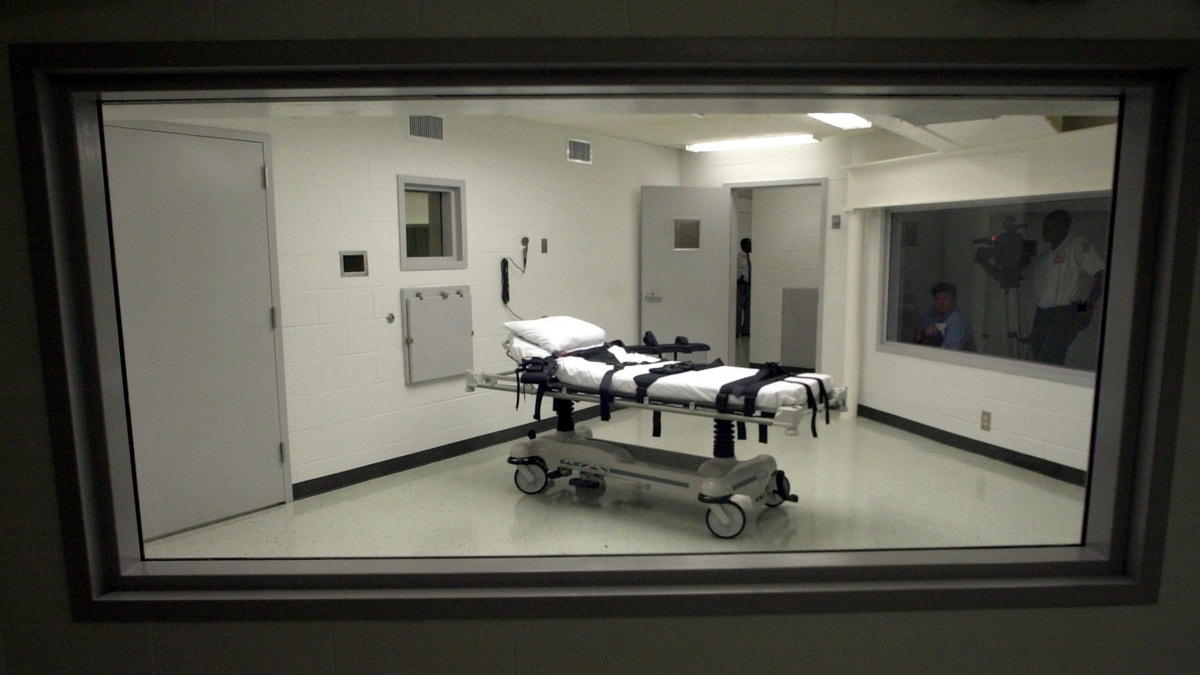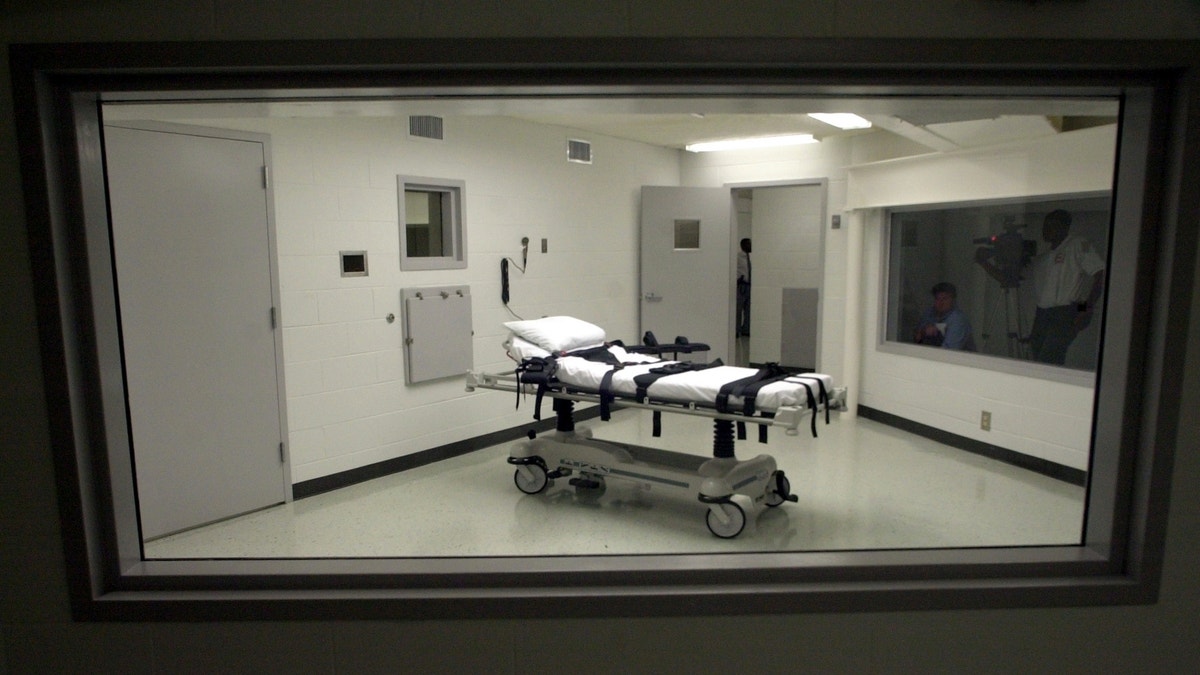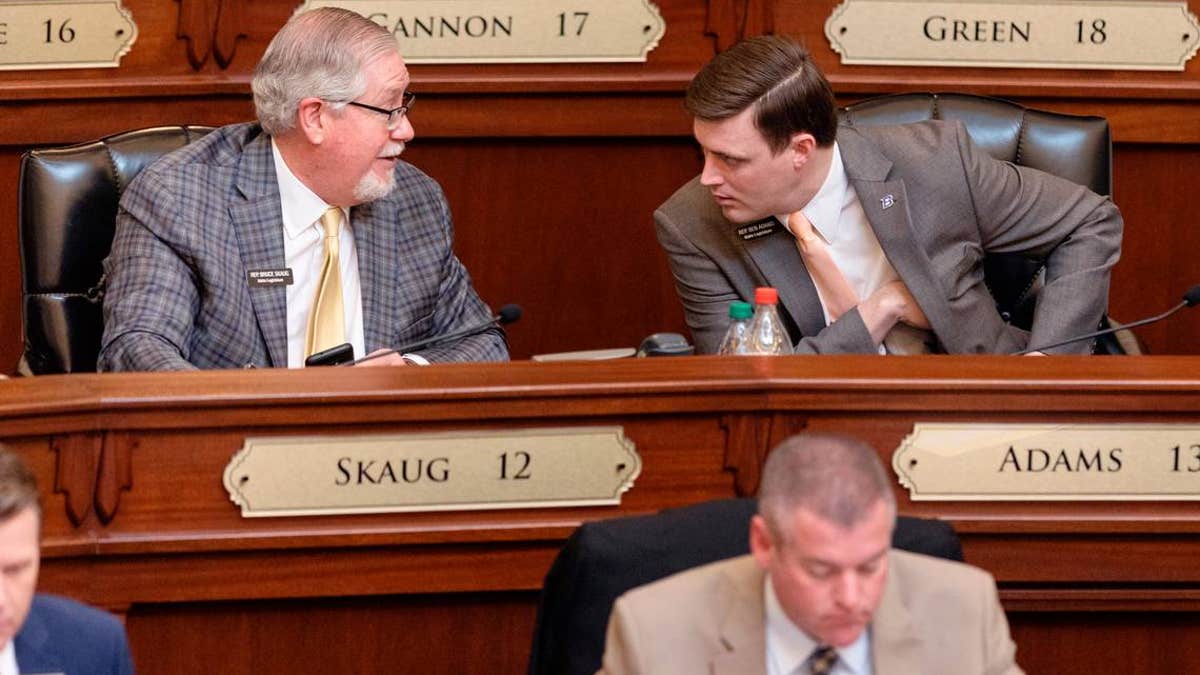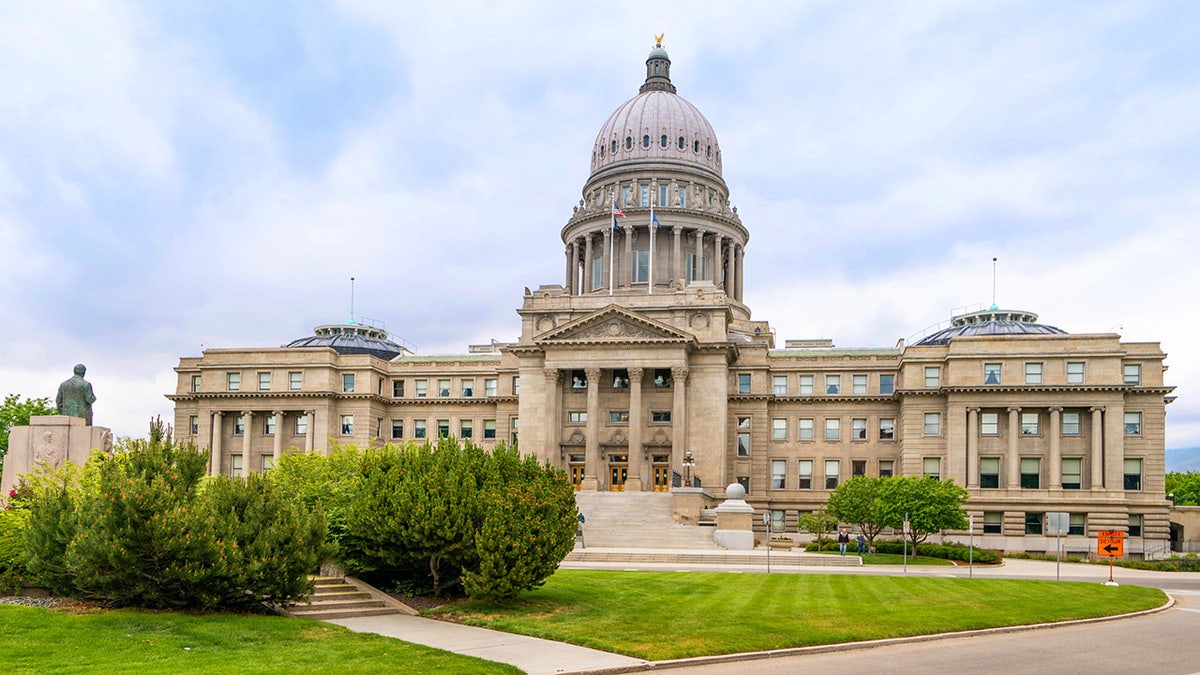
The Idaho legislature passed a bill this week to carry out the death penalty for sex crimes against children younger than 12.
Another bill permitting prosecutors to bring sexual exploitation charges against producers of child pornography using artificial intelligence (AI) also passed the assembly in the same session.
HB 515 would amend Idaho’s current statute that carries a life sentence for “lewd conduct with a minor” below the age of 16. If the child is under 12, if the act is “especially heinous, atrocious or cruel, manifesting exceptional depravity,” then prosecutors would seek the death penalty.
Idaho Republican Rep. Bruce Skaug, one of the coauthors of the bills, said that he believed that the U.S. Supreme Court 2008 ruling declaring it unconstitutional to apply the death penalty in cases of child rape where the victim survived was “the wrong decision.”
GALLUP REPORT FINDS DEATH PENALTY INCREASINGLY VIEWED BY AMERICANS AS ‘UNFAIRLY’ ADMINISTERED

Alabamas lethal injection chamber at the Holman Correctional Facility in Atmore, Alabama, is pictured, October 7, 2002. (AP Photo/Dave Martin)
The state’s new law aligns with Florida’s after Gov. Ron DeSantis signed into law last year a measure instituting the death penalty for those convicted of sexually abusing children under 12.
The other bill, HB 465, expands on the state’s current laws outlawing the creation and distrubution of child pornography by including AI-generated images and videos that are depicted as real children.
“This technology is being used to create thousands of images of children across the world and in Idaho,” Republican Rep. Dori Healey, one of the cosponsors of the bill, said during the vote.
There’s a current federal law prohibiting hyper-realistic sexual images of children, but it has gone untested against AI depicted children where no child is actually present. Many are urging Congress to pass laws to address AI-generated pornographic images of children more specifically.
WASHINGTON GOVERNOR SIGNS BILL ELIMINATING DEATH PENALTY IN STATE

Idaho state Rep. Bruce Skaug, a Nampa Republican, left, speaks with fellow Republican state Rep. Ben Adams, also of Nampa, during the 2022 House session. (Sarah A. Miller/Idaho Statesman/Tribune News Service via Getty Images) (Sarah A. Miller/Idaho Statesman/Tribune News Service via Getty Images)
Last year, more than two dozen U.S. House Republicans demanded to know what the Department of Justice (DOJ) is doing to combat the emergence of AI-generated child pornography on the internet.
“We write to you with grave concern regarding increasing reports of artificial intelligence (AI) being used to generate child sexual abuse materials (CSAM) which are shared across the internet,” Rep. Bob Good, R-Va., wrote in a letter to Attorney General Merrick Garland.
“While recognizing the benefits of appropriate uses of AI, including medical research, cybersecurity defense, streamlining public transit, and may other applications, we believe action must be taken to prevent individuals from using AI to generate CSAM.”

The Idaho State Capitol Building on May 23, 2021, in Boise, Idaho. (Photo by AaronP/Bauer-Griffin/GC Images) (AaronP/Bauer-Griffin/GC Images)
CLICK HERE TO GET THE FOX NEWS APP
The lawmakers cited an October 2020 report by the MIT Technology Review that warned of an AI app that was being used to digitally “undress” images of women, predominantly young girls.
Meanwhile, prosecutors in all 50 states wrote to Republican and Democrat leaders in both chambers urging them to do more to curtail the rise of AI-generated child porn, the Associated Press first reported. Lawyers argued that the U.S. is “engaged in a race against time” to protect children from the growing dangers AI could pose.








